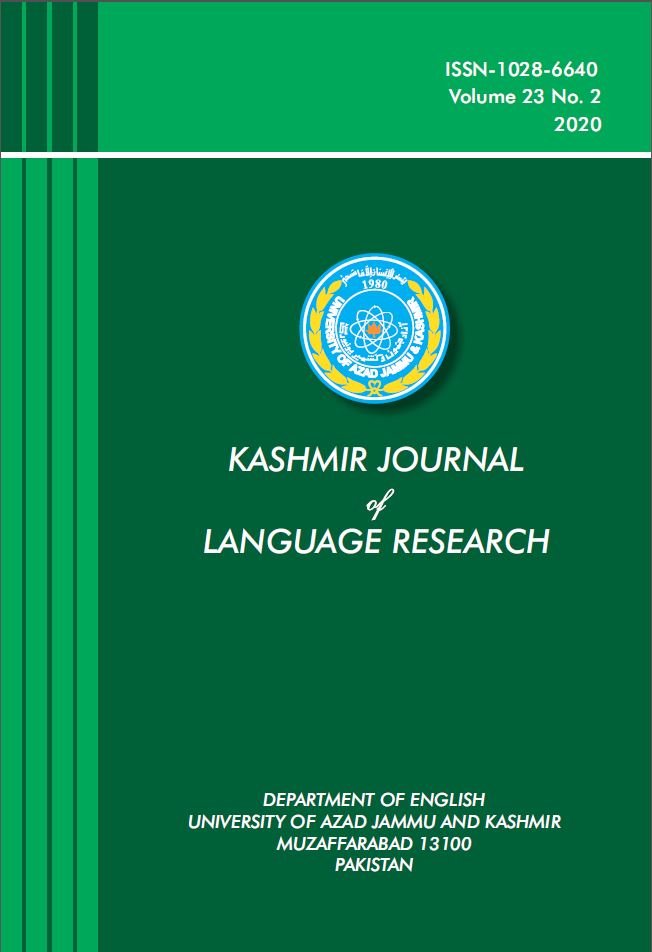More than Alienation: A Comparative Study of Katharine Mansfield’s ‘Miss Brill’ and Peter Carey’s ‘Life and Death in the South Side Pavilion’
Keywords:
Alienation, Disorientation, Impotence, Self-esteem, Metropolis, HierarchyAbstract
The present study aims at observing the peculiarities of the concept
of alienation and disorientation in Katherine Mansfield’s short
story ‘Miss Brill’and Peter Carey’s short story ‘Life and Death in
the South Side Pavilion’ through the Lenz of Maslow’s theory of
Hierarchy of Needs. This theory focuses on the basic needs of a
person including physical, biological, psychological and socioeconomic
aspects as the absence of these factors cause not only
alienation but more than this like physical and sexual impotence. A
preliminary overview of the hierarchy of needs theory helps to
analyze the characters of Miss Brill and Shepherd 3rd class to link
their alienation with the lack of love and belongingness on one
hand, while self-esteem issues and challenges of the modern world
and its metropolis and industrialization attitude on the other hand.
To conclude, Miss Brill and Shepherd 3rd class both are deprived
of basic hierarchy needs according to Maslow’s theory and this
deprivation becomes the cause of their alienation. The researcher
suggests that an understanding of existential purpose is crucial in
life, and it is when we are denied such knowledge that we are
isolated and disorientated.

Downloads
Published
Issue
Section
License
Copyright (c) 2021 Kashmir Journal of Language Research

This work is licensed under a Creative Commons Attribution 4.0 International License.




